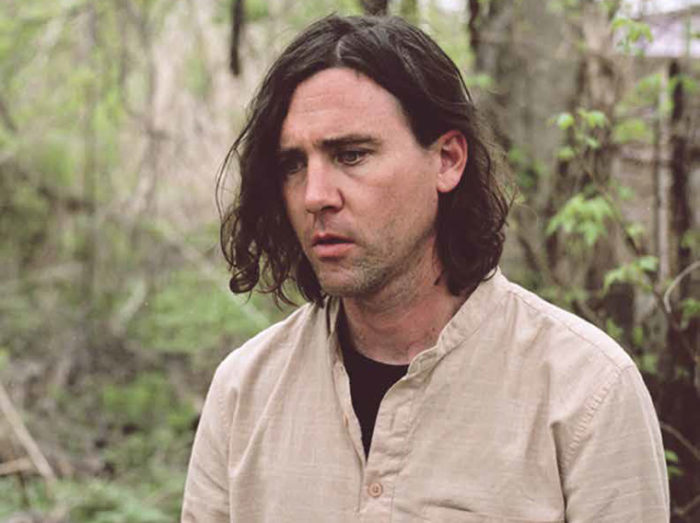Reel Time: Cass McCombs
“Most of my albums are a simple collection of songs that have nothing to do with each other except that they were written around the same time and, perhaps, have some recurring themes,” Concord, Calif.-bred singer/songwriter Cass McCombs says of the thoughtful, often moody full-length albums he’s released since 2003. “But this one’s a record.”
In the spring of 2012, Bob Weir performed McCombs’ “Love Thine Enemy” with members of The National, Yellowbirds, The Walkmen and others at his TRI Studios as part of a live webcast. That cover helped McCombs score a spot at another TRI show a few months later and gave the nomadic, indie songsmith the green light to move deeper into the jamband universe. For the past year, McCombs has spent time working on his next Domino Records release with a range of collaborators, including Furthur drummer Joe Russo and Phish bassist Mike Gordon.
Pandemonium in the Studio
I’m always reading and writing on the road. I ended up with a bushel of songs, and we started in the studio in September [2012] in Brooklyn. And, even before we went into the studio with the band, we did a couple of days in London and a few days in San Francisco with some friends. Plus, there has been periodic overdubbing. We ended up with around 30 some-odd songs, which is about twice as many as I’ve ever tried to bite off. I have a touring band and they’re fantastic. So we started with those guys, but other folks started coming in—friends of friends—and we had an open door policy. Toward the end there, it was pandemonium in the studio. People would just show up and grab whatever instrument they felt like. It was chaos—controlled chaos.
Musicians are on the Borderline of Psychotic
We don’t have a producer. That is another form of chaos. There is no one aside from myself or the band who are more familiar with the tunes just because we’ve played them on the road for a couple of years now. Live, we do a lot of improvisation and toying around with different parts of a song. We can decide when to change the part, but we tried to create a whole new form of communication in the studio. But then again, this is why I’ve always had a tough time in the studio—the tape’s rolling, the clock’s ticking. It’s one thing to improvise in Akron, Ohio—because that’s what people traveled this far to do—but in the studio everyone has taken the time to make an album. [Laughs.] Without a producer, it ends up being completely reckless, anyway. Musicians are on the borderline of psychotic, so that’s what’s gonna happen.
Big Names and Old Friends
All sorts of people play on the album—old friends from living here and stuff. There’s Joe Russo; Tim DeWitt from Gang Gang Dance; Ryan Sawyer, who’s in a bunch of great Brooklyn groups; Dan “Buddy” Iead, who plays guitar in my band; “Sleepy” Doug Shaw; Mike Bones; Joan Wasser [of Joan As Police Woman] and, of course, Mike Gordon. Russo is the best. We met when we both played with Bob Weir at TRI Studios [in August 2012]. He also plays with my bass player [and Wolf! member] Jon Shaw from time to time. We don’t have a solid touring drummer, so he was perfect. On this album, we have two drummers: Joe and an old buddy of mine, Parker Kindred. But Joe’s “person” is inspiring for everyone to be around and then his playing, of course, is so free. He plays drums like an instrumentalist.
Undercover Phishhead
I am a big Phish fan—I had a subscription to Relix in the early ‘90s. I’m incredibly indebted to Mike Gordon for being on my record. He’s such an amazing player. I mean, God, he’s so unique. I’ve never played with someone who plays like that. He’s one of the best—not just bass players, but musicians—I’ve ever been around. He was game for the chaos. He didn’t flinch. We also met through that TRI show.
Improvising in Slow Motion
I wanted to record as many songs as possible—not just my songs, but other people’s songs. So basically, every song we did, we did two takes: a run-through take and the take that’s on the record. And many of them are completely live. I heard a saying once that composition is improvisation in slow motion. So they’re connected—when you’re improvising, you’re right at the precipice of invention at a momentary level, but you’re composing. You’re using the whole of your ability, but the form is not behind you—it’s in front of you.




















